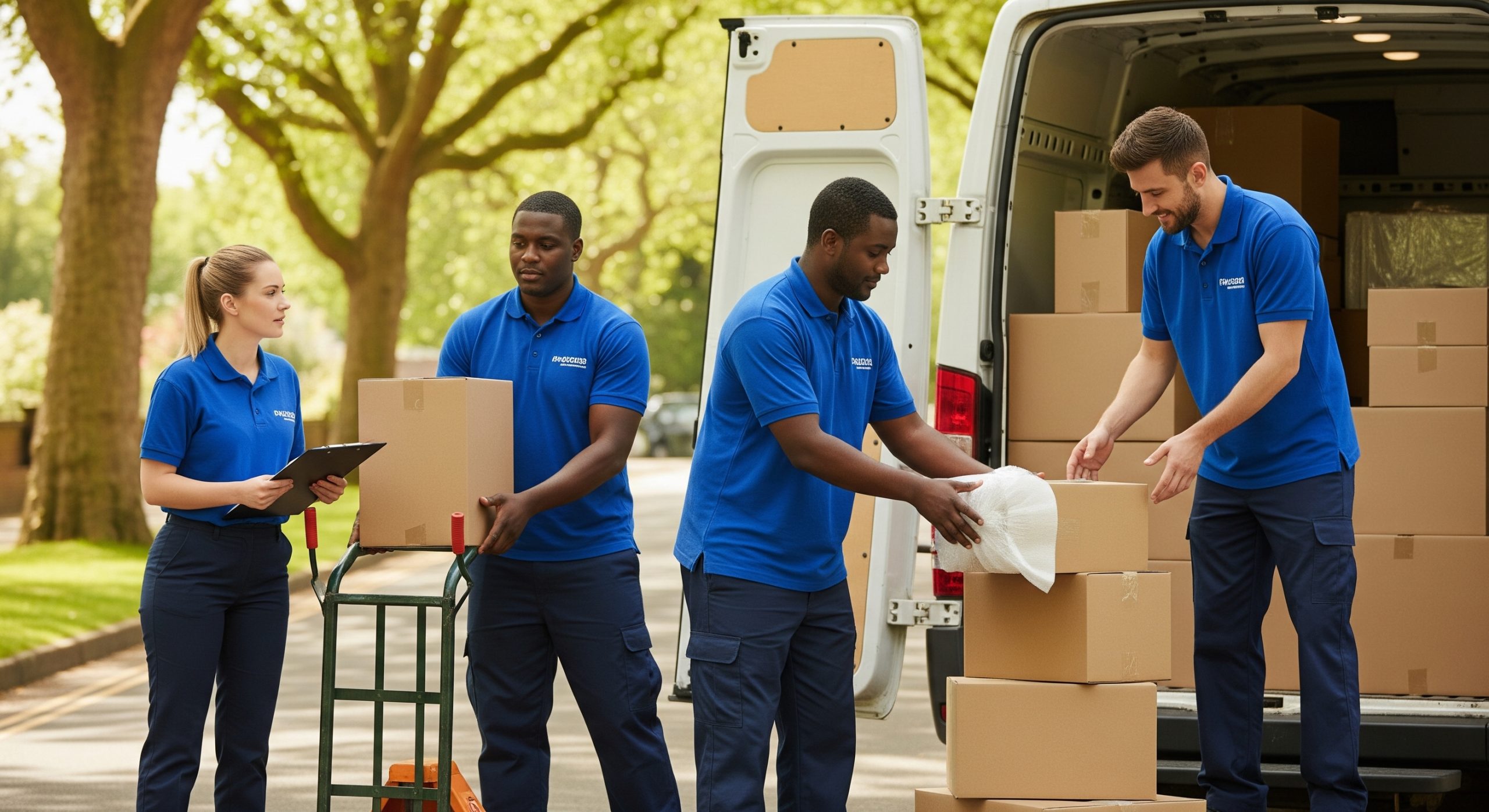Address
304 North Cardinal St.
Dorchester Center, MA 02124
Work Hours
Monday to Friday: 7AM - 7PM
Weekend: 10AM - 5PM
Empowering Education, Transforming Lives
Our consulting work includes offering basic assistance to developing world professors, students, NGOs, and nonprofits. Our consulting capability ranges from interconnection strategies to problem-solving and disseminating information.
Our promotion work consists of connecting individuals to the academic causes they care most about. We promote, encourage, and foster collaboration on a range of important projects, mostly on social group sites.
We recruit relevant experts for our clients and volunteers to staff our organization. We offer many of our volunteers the chance to develop a new skill or try out a new role.
The International Professors Project (IPP) is an exchange network working to meet higher education needs in emerging and developing countries.

A bad move from university housing can bring on as much stress as preparing for exams if you are not organised. If you’re moving after exams, between flats, or starting a summer internship, ensuring you move on campus during the summer without upsetting your term means planning more than just packing your belongings. The solution? Select a professional removal service in Northampton that knows students’ needs and provides convenient and cost-effective services for the education system.
Students and parents can trust removal companies based in the country. They are familiar with the design of Northampton’s campus, local traffic, places to park, and the housing in Kingsthorpe, Far Cotton, and Abington. By using local knowledge, our team can move your things very efficiently, even when it’s summer.
Here is how a removal company can simplify your move

Book your move around 3–4 weeks before classes finish. Most students move in during late June or early July, when demand for removal and loading services is highest. Depositing ahead of time guarantees your choice of date and spares you from extra costs for special seasons. Further, some removal companies in Northampton have special discounts for organizing multiple moves together. Whenever you move out with your flatmates, scheduling one moving service is more affordable and better for the environment.
While comparing removal companies in Northampton, you should try to assess the following,
Plain Pricing: There should be no shady fees hidden in the prices. Some providers offer fixed student pricing or provide a combination deal that includes packing and storing your items.
Insurance cover: Accidents have a way of happening, and insurance will guide you through unexpected situations. The company has to cover your items throughout the move, especially for electronics or textbooks.
DBS-Checked Staff: You need people with DBS checks to be present on university campuses or in buildings you share. Genuine firms always confirm the identities and backgrounds of all users.
Good Reviews: Use Yell.com and Trustpilot to spot removals companies with successful stories moving students in Northampton.

Make sure to check for extra services that are offered:
?When you move in the summer, you not only take the pressure off relocation, but also protect your learning, mood, and belongings. Having a reliable Northampton removal company handle your items helps minimize problems and keeps your life on track.
Moving a school or educational institution is a complex task, as there are many equipment and supplies to pack and transport. But what if there was a way to make it much easier? How do you find the right team to help? Whether relocating classrooms, administrative offices, or even an entire campus, picking a trustworthy and efficient Doncaster Removals company can make all the difference. You don’t want to find your institution’s equipment scattered or damaged because you didn’t choose the right help. This guide will walk you through the necessary steps to find a reliable and stress-free removal company for your institution.
Begin by asking: Who in your network has recently moved their educational facilities? Other schools, educational institutions, or local businesses might have valuable insights. Personal experiences can be incredibly helpful when choosing a removal company. Did they have a smooth transition? Were there any issues? Asking these questions can lead you to a company that’s already proven itself trustworthy and efficient.

But what if you don’t get any recommendations? No worries; there are still plenty of ways to find a great removal company. Start by searching online for “Removal Company Doncaster for Educational Institution” and look at customer reviews and ratings. This will give you a sense of how different companies perform. You can also check local directories and ask for quotes from several companies to compare their services and prices.
Note that not all companies offer the same services. Some handle only transport, some assist with packing, and others provide both. Therefore, choose the company that provides the services your institution needs.
Once you have a few quotes, it’s time to dig a bit deeper. Start by calling the companies and getting the exact numbers. Don’t just settle for rough estimates; ask for a detailed breakdown so you can compare apples to apples. Moving companies might charge by the hour or offer a flat rate, and hourly rates can vary. The total cost can also change depending on where you are, the time of year, and how far you’re moving. Also, if you have special items like lab equipment or pianos that need extra care, there may be extra charges for their transport.
Moving can be unpredictable, and you don’t want to risk losing your institution’s belongings due to unforeseen issues. Therefore, it is important to ask about insurance and find out what coverage the removal company offers. Ask questions like:
A reliable company will offer clear answers and provide reassurance that your items are covered.

Even with the right steps, be cautious of potential red flags. Some companies are more interested in making a quick buck than providing quality service. Therefore, if a mover insists on getting payment upfront, it could be a sign that they’re not legitimate. In addition, pay attention to their professionalism during the estimate. If they’re not punctual, can’t answer your questions clearly, or are unsure of their abilities, it’s a good idea to consider other options.
Choosing the right removal company for your educational institution in Doncaster can make all the difference. With careful planning and the right choice, you’ll be well on your way to a successful move and settling into your new location with ease.
An in-depth education in plumbing systems and how they work can go a long way for individuals in Gillingham who are curious about blocked drains. The reality is that drain blockages are in no way an uncommon problem. Thankfully, the sooner you’re able to identify a blocked drain, the sooner you’ll be able to find a drain blockage service in Gillingham to unblock it, so you can resume your normal day-to-day existence.
Educating yourself in the typical signs of a drain that’s in need of unblocking may stop any situation from spiralling out of control. What are some common indicators of a blocked drain, anyway? If you have a blocked drain on your hands, you may detect some awful and persistent odours. These odours may be the consequence of organic matter and food getting trapped inside of pipes and beginning the inevitable decomposition process.
Slow drainage is another frustrating sign of a drain that’s in serious need of unblocking work. If you observe that the water in your toilet, sink and bathtub just isn’t draining as rapidly as it did before, that most likely denotes a degree of blockage. Note, too, that failure to drain completely is possible. This failure is in many cases a sign of a particularly severe blockage crisis.
water in your toilet, sink and bathtub just isn’t draining as rapidly as it did before, that most likely denotes a degree of blockage. Note, too, that failure to drain completely is possible. This failure is in many cases a sign of a particularly severe blockage crisis.
Look closely at the water levels inside your toilet. As noted before, if your toilet has been recently draining in a bizarrely sluggish manner, that may bring on a conspicuous change in its level of water. If the level of water gets a lot higher any time you flush the toilet, that may signify a blocked drain that’s in need of immediate attention from capable professionals.
Think about any noises your drains may make. Do you hear any bubbling or babbling sounds at all? If your answer is yes, that may be a sign of a blockage issue. Noise is often a sign of a blockage that people notice before anything else at all. A drain that lacks a pathway that’s unobstructed and clean may have a hard time doing its job well, perhaps unsurprisingly.
Think about drain pressure. It’s no big shocker that blocked drains have the ability to interfere quite significantly with the overall functioning of plumbing systems. That’s one of the reasons that blocked drains often lead to noticeable water pressure drops that may be quite unnerving. Note, though, that decreases in water pressure are definitely not always the result of drains that need unblocking. They can in some situations be a clue to a problem that’s totally different yet no less alarming. A burst water main may be one prominent example.
Learning about drain unblocking can be helpful to people who wish to be familiar with how their plumbing systems work. If you have a blocked drain anywhere in Gillingham, however, it’s definitely best to turn to professional plumbers for service. Calling qualified and seasoned plumbers for unblocking service can often stop drain issues from getting more and more out of hand.
The world as we know it today is very interconnected. When it comes to higher education, we are aware of its transformative shift towards internationalization. Institutions around the globe are increasingly recognizing the importance of encouraging a diverse and globally engaged learning environment. From promoting cultural exchange to enhancing academic collaboration, internationalization brings forth a myriad of benefits that extend far beyond the confines of traditional educational boundaries.
Embracing cultural diversity enriches the educational experience by exposing students to different perspectives, traditions, and ways of thinking. The interactions students have with peers from diverse background helps them develop a broader understanding of global issues and cultivate the skills necessary to thrive in an interconnected world. By promoting cultural empathy and understanding, internationalization cultivates a sense of global citizenship essential for addressing complex global challenges.
Collaboration between institutions across borders facilitates the exchange of knowledge, expertise, and research resources. International partnerships enable students and faculty to engage in collaborative research projects, joint degree programs, and interdisciplinary initiatives. By tapping into a global network of scholars and researchers, institutions can drive innovation, expand academic horizons.
In an increasingly globalized job market, employers seek candidates with cross-cultural competence and international experience. Internationalization equips students with the skills and attributes necessary to thrive in diverse professional environments. By studying abroad, participating in international internships, or engaging in cross-cultural activities, students develop intercultural communication skills, adaptability, and a global mindset, enhancing their employability and career prospects.

Exposure to different languages is a cornerstone of internationalization efforts in higher education. Proficiency in multiple languages not only facilitates communication and collaboration but also opens doors to a wide range of opportunities in academia, business, and diplomacy. By offering language courses, immersion programs, and language exchange initiatives, institutions play a pivotal role in nurturing multilingualism.
Study abroad programs and student exchange initiatives enable students to immerse themselves in different cultural contexts, broaden their horizons, and gain invaluable life experiences. International mobility fosters personal growth, independence, and resilience while promoting intercultural dialogue and mutual understanding.
Collaborative partnerships between institutions, governments, and organizations facilitate knowledge exchange, capacity building, and joint initiatives aimed at addressing global challenges. Strategic alliances enable institutions to leverage each other’s strengths, resources, and expertise to tackle complex issues such as climate change, public health, and social inequality. By fostering cross-border collaboration, internationalization promotes collective action and contributes to the advancement of sustainable development goals.
When it comes to High School, I believe it’s a powerful tool for cultural diplomacy and soft power projection on the international stage. Inviting students from all backgrounds, institutions promote people-to-people exchanges, foster goodwill, and build bridges across cultures. Educational exchanges promote mutual understanding and trust, paving the way for enhanced diplomatic relations, economic cooperation, and geopolitical stability.
Internationalization in higher education is indispensable in today’s interconnected world. By embracing cultural diversity, encouraging academic collaboration, and promoting global competence, institutions prepare students to face the rapidly changing state of education on a global scale. Through strategic partnerships, international mobility, and cultural diplomacy, institutions offering higher education play a pivotal role in shaping a more inclusive, equitable, and interconnected world.
I actually started out looking for a position anywhere in Africa, but it’s hard to even begin a search that broad. So partly by chance I ended up focusing on Ethiopia. I’m a computer programmer by trade, not a professor, and I was looking for a school where my experience would really add something. I mean India has plenty of eager computer science students, but it also has a much larger pool of teachers with the relevant skills. The last thing I wanted to do was end up taking some local teacher’s job.
Ethiopia has a pretty extreme shortage of computer science teachers relative to local demand. It’s also a country I knew very little about, so coming from Canada I figured I’d learn something about what life was like for people in a very different place.
Well, my boss at a previous company was Ethiopian, but I didn’t use that connection as well as I should have. I started out looking for an NGO that could help set up the trip. But I didn’t find much. CIDA (the Canadian International Development Agency) has a program for young Canadians wanting to work abroad, but it seemed to be aimed more at fresh grads than at more experienced workers like me. I didn’t find anything like IPP.
Fortunately, this was 2002, not 1992. I just spent a few weeks searching the Web and sending emails to various random Ethiopian organizations and potential employers. Most went nowhere, but one guy referred me to an Ethiopian company that ended up hiring me as a software consultant.
